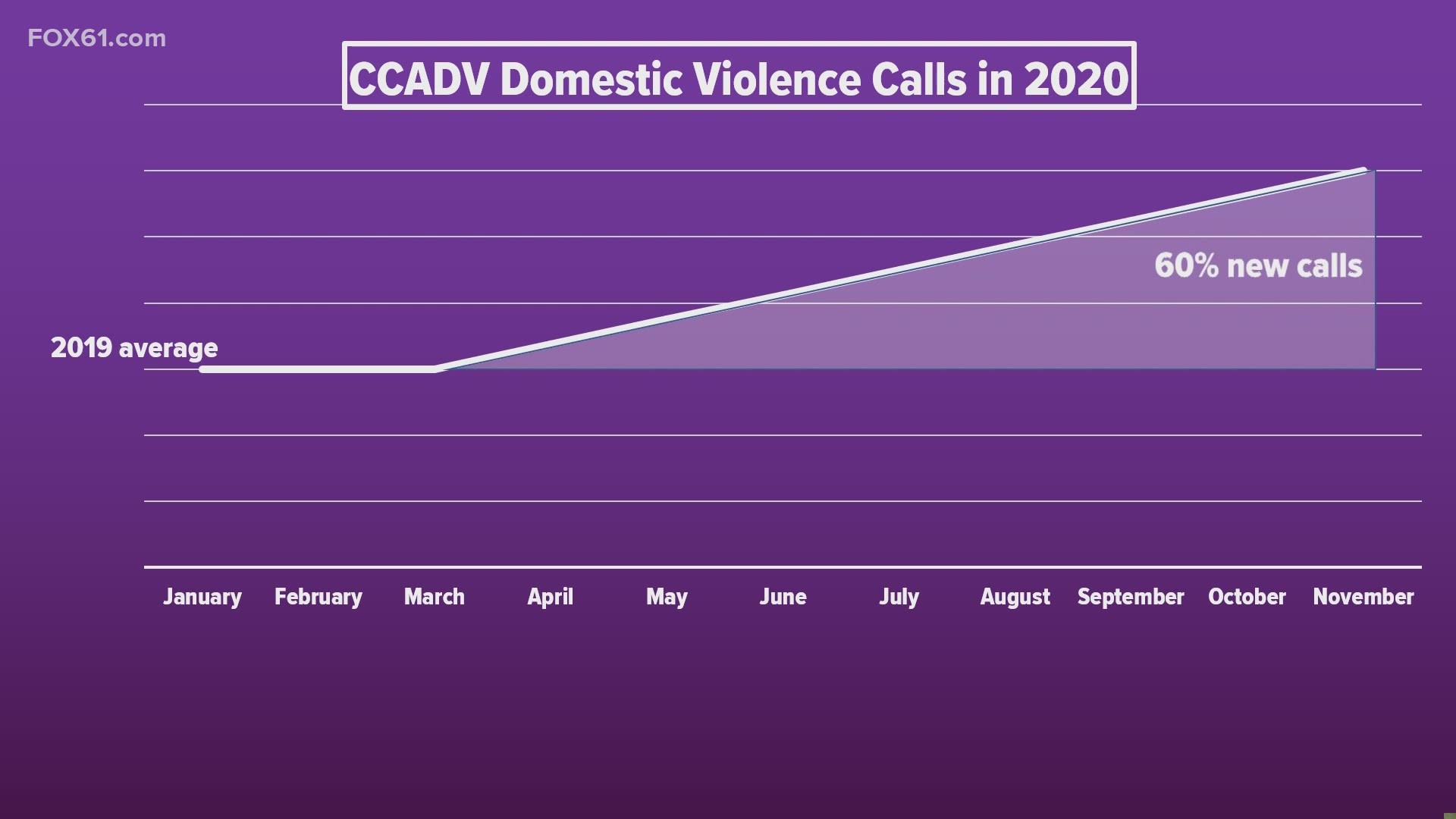CONNECTICUT, USA — The judicial system is just one more sector of life that COVID has forced to change rapidly. From online proceedings to helplines, domestic violence cases are operating remotely as well.
"I think domestic violence, unfortunately, has always been there in households but the pandemic has really served to exasperate the situation, and thankfully there is help available 24/7," says Karen Jarmoc, Executive Director of the Connecticut Coalition Against Domestic Violence.
The COVID-19 pandemic has called for everyone to stay home.
"We were really focusing on the safety of people both in coming to court as far as catching COVID and the victims," says Chief State's Attorney, Richard Colangelo. "That was something we made sure we were talking about and was addressed in all of the things we had going on."
But, the home could be one of the most dangerous places for a victim of domestic violence.
"So, it’s concerning because obviously, domestic violence didn’t go away, but I can say for a fact whenever there was an application, whenever there was an issue with domestic violence, the prosecutors and law enforcement we worked with didn’t stop because there was a pandemic," says Colangelo.
The court adjusted its practices to allowing for online applications for restraining orders.
"Allowing victims and victims' advocates to be able to file a report with my office via email so they don’t have to come directly to my office," says Colangelo.
The Connecticut Coalition Against Domestic Violence noticed an uptick in usage of their CT Safe Connect hub, which allows people to reach out to advocates via chatroom, text message, email, and phone call in many different languages. Contacts to the safe hub increased by 30% during the pandemic.
"We also know 60% of those individuals reaching out have never reached out before," says Jarmoc.
Technology is proving to be a saving grace. CT Safe Connect acts as a centralized hub for victims to connect with resources.
"We’ve learned advocates can do an amazing job with keeping connections with survivors at really critical times through Facetime, texting, emailing, live chatting, all sorts of ways where they’re able to have a conversation because we know that especially with shut-in orders if you’re shut in with your abusive partner, it’s really important to have a link for help for someone to talk to and think about your safety with," says Jarmoc.
The Courts, too, have embraced a remarkable transformation with many proceedings happening right on your laptop.
"Judge Carroll said it best when he said we moved the court system of criminal justice forward ten years in probably two weeks," says Colangelo. "I think the use of technology is important and I hope that we’re going to keep using that technology."
If you or someone you know is a victim of domestic violence, help is still available to you. Head to CTsafeconnect.com to talk to an advocate and to learn more about filing for a restraining order online.
To file a restraining order online, head here.
Nearly 40,000 people reach out to the Connecticut Coalition Against Domestic Violence every year. If you or someone you know needs help, here are some resources:
For a summary of Connecticut domestic violence laws, see CT Judicial Branch Law Libraries guide:

